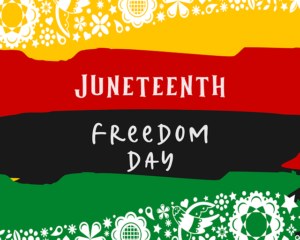Hello, Adult Readers,
You’ve probably noticed that in Hollywood, CA, many members of the Writers Guild and SAG-AFTRA are on strike, bringing focus to the emerging use (and abuse) of generative artificial intelligence (AI) in the movie, television, and radio industries.
Perhaps you aren’t aware that fiction and nonfiction authors are also demanding intellectual property rights and protections in the wake of unregulated use of AI impacting their craft and finances. Enter the Authors Guild.
The Authors Guild (AG), a national organization to which I belong along with about 13,000 other U.S. authors, is actively advocating for us, demanding that Generative AI leaders “obtain, consent, credit, and fairly compensate writers for the use of copyrighted materials in training AI.”
 In mid-July, “AG submitted written testimony before the U.S. Senate Intellectual Property Subcommittee in connection with the government’s July 12 hearing on artificial intelligence. The Guild’s testimony underscored the threat to the writing profession from unregulated use of generative AI technologies that can produce stories, books, and other text-based works and displace the works of human authors in the marketplace. The testimony also called Congress’ attention to the inherent unfairness of AI companies’ use—without consent, credit, or compensation—of millions of books, articles, essays, and other written works to “train” generative AI systems and essentially making them a part of the AI’s fabric.
In mid-July, “AG submitted written testimony before the U.S. Senate Intellectual Property Subcommittee in connection with the government’s July 12 hearing on artificial intelligence. The Guild’s testimony underscored the threat to the writing profession from unregulated use of generative AI technologies that can produce stories, books, and other text-based works and displace the works of human authors in the marketplace. The testimony also called Congress’ attention to the inherent unfairness of AI companies’ use—without consent, credit, or compensation—of millions of books, articles, essays, and other written works to “train” generative AI systems and essentially making them a part of the AI’s fabric.
“AG emphasized that unless Congress intervenes to put guardrails around the development and use of generative AI technologies, the important copyright incentives that drive original expression and enrich our cultural discourse will be rendered meaningless.
“AG proposed detailed policy recommendations that would require AI companies to seek permission for using writers’ works, pay compensation to writers who allow their works to be used, disclose training data, and pay writers for use of their styles, names, likeness, and parts of their works in AI output.”
Last week, “AG delivered its AI open letter to the CEOs of OpenAI, Alphabet, Meta, Stability AI, IBM, and Microsoft, as well as all 535 members of Congress. Since then, the letter has been written about at NPR, The Wall Street Journal, the Los Angeles Times, the Associated Press, United Press International (UPI), CNN, BBC, CBC, Al Jazeera, the Daily Mail, Forbes, Bloomberg Law, Insider, The Economic Times, and more.
“As of now, more than 10,000 AG writers and their supporters have signed the letter. Signatures include luminaries such as Dan Brown, James Patterson, Jennifer Egan, David Baldacci, and others.” Signatures from the rest of us not-so-luminary authors are included.”
For more from AG about its advocacy, artificial intelligence, and AI’s impact on writers, please click HERE.
To read more about AG in the News, including info on 8,000 authors demanding that OpenAI leaders pay them for unauthorized use of their works, click HERE.
As an author, reader, and/or supporter of authors, you are invited to sign AG’s AI open letter by clicking HERE. Check out my name on page 11 of 124.
So, get a clue, Readers. AI is here to stay. And it owes its livelihood to creatives; therefore, I believe we need to seek positive, fair, common sense ways to integrate AI into creative endeavors with the fair and legal use of copyrighted works for writers’ compensation. What do you think?
(Photo Credit: Anna Shvets on pexels.com)

 In mid-July, “AG submitted
In mid-July, “AG submitted 

 Here are some RESOURCES for you on this topic:
Here are some RESOURCES for you on this topic:



